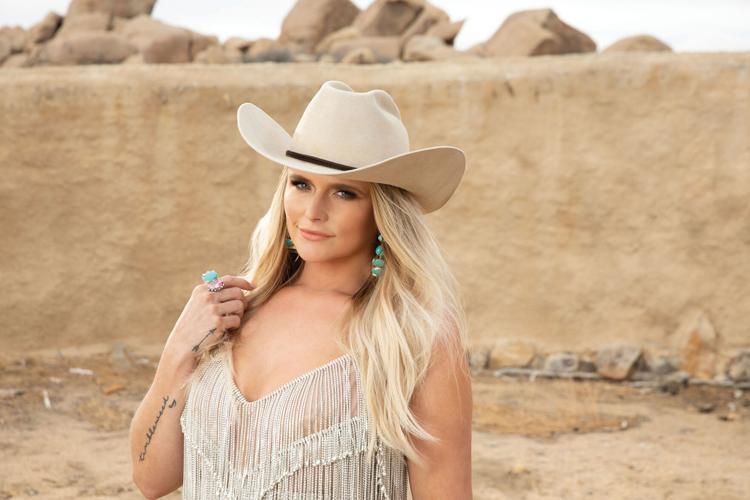
Miranda Lambert
Divide up humanity by any demographic — race, age, gender identity, economic status — and you’re bound to find people with whom country music resonates. The most meaningful country has lots in common with meaningful music from other traditions: It’s full of wit and wisdom and celebrates being alive in good times and bad. Like any cultural expression, country music generally evolves along with the rest of culture, though reverence for country tradition sometimes means there’s significant griping about it.
Thousands of country music fans will flock to Nashville June 8 through 11 for the 50th anniversary edition of the CMA Music Festival, which began as Fan Fair in 1972 — inspired in part by Loretta Lynn’s love for her fans — and rebranded in 2004. Organizers canceled the fest in 2020 and 2021 because of COVID-19, but it returned with an estimated attendance of 80,000 people per day in 2022; it remains about the biggest gathering of fans there is. Between the in-person weekend, the annual TV special — which will feature performances filmed during the four nightly capstone shows at Nissan Stadium and will air on ABC July 19 — and the forthcoming feature-length documentary CMA Fest: 50 Years of Fan Fair that hits Hulu on July 5, the festival is still the biggest platform for artists.
Members of BIPOC communities and LGBTQ communities love country music just as deeply and richly as anyone else, and they are represented on the festival’s stages. The Country Proud showcase, spearheaded by Nashville queer music organization RNBW, has a prominent spot on the fest’s undercard, bringing LGBTQ country musicians to the Hard Rock Stage near the riverfront on Friday from mid-morning to early afternoon. RNBW has also curated a Spotify playlist for CMA. Black Opry, which is building a support system for BIPOC country musicians whom the industry has historically ignored at best and abused at worst, is not curating a showcase this year as a follow-up to last year’s. But Black and brown artists continue to get more visible, valuable placement throughout CMA Fest.
We forget at our peril that music marketers in the early 20th century established two basic genres in order to capitalize on racism, and the echoes still reverberate. Progress remains slow in changing the power structure — within the CMA specifically and the country industry in general — to give people of color and queer people authority and equity in the genre over the long term. Something else we forget at our peril is that the CMA was originally established to uphold a purity standard for country music built on a racist foundation of wanting to counter the cultural influence of rock ’n’ roll.
Morgan Wallen, who has come to symbolize discussions about racism in country music since he was caught on camera using the N-word in early 2021, isn’t scheduled to play CMA Fest. After a period out of the limelight, he performed at the CMA Awards ceremony in November, and he’s been selling out arenas on the tour behind his new album One Thing at a Time. It wouldn’t have been surprising to see him as a late addition to the festival — if he had not recently canceled six weeks of his tour due to a vocal cord injury.

Eric Church
Superstars Miranda Lambert and Eric Church, who do have prime slots on the big stage at Nissan Stadium, worked with Wallen on his new LP. Their decision to collaborate with him when there still hasn’t been a real reckoning — with either his actions or the cultural issues underlying them — further cemented Wallen’s slow and steady reintegration into the mainstream.
Someone else who’ll appear at the stadium is Jason Aldean, who’s noted for enthusiastically supporting his wife’s transphobic horseshit. In a year when our state legislature went into overdrive attacking the rights of gay and trans people, it’s hardly a surprise that Aldean is still welcome in the country mainstream and at the festival.
If this back-and-forth feels familiar, you’re paying attention. The long-established pattern is for grassroots organizations like Black Opry and RNBW to lead the way in making important changes, while big trade groups like CMA follow suit.
It’s also not impossible for large organizations to act when they recognize urgency. Within a few hours of a lawsuit filed by rising star Jimmie Allen’s former day-to-day manager, in which she accuses him of rape and a horrific pattern of abuse over 18 months, CMA Fest organizers announced that Allen would not be appearing at the festival.
And as country artists who are also part of marginalized communities have said, the need for a cultural shift is urgent. Trans artists like Mya Byrne are calling for visibility and financial equity, all while they have to carefully consider routing their tours to maintain their physical safety. As Black Opry’s Holly G pointed out in a January 2022 conversation with Scene contributor Brittney McKenna that continues to resonate, moving the needle on the systemic racism highlighted by Morgan Wallen doesn’t have all that much to do with him personally — it’s about addressing the way that his downplaying and avoiding criticism makes a safe space for racism. “[Wallen has] apologized for what he’s done,” Holly G said, “but at no point has he come out and said, ‘I don’t want these people at my concerts. I don’t want them to follow me. I don’t want them harassing Black people on social media.’”
If country music is supposed to be about family — making people feel loved, respected, proud of who we are — then as always, there’s plenty more work to be done.
The who, what, where, when and why of this year’s Bonnaroo and CMA Fest
















